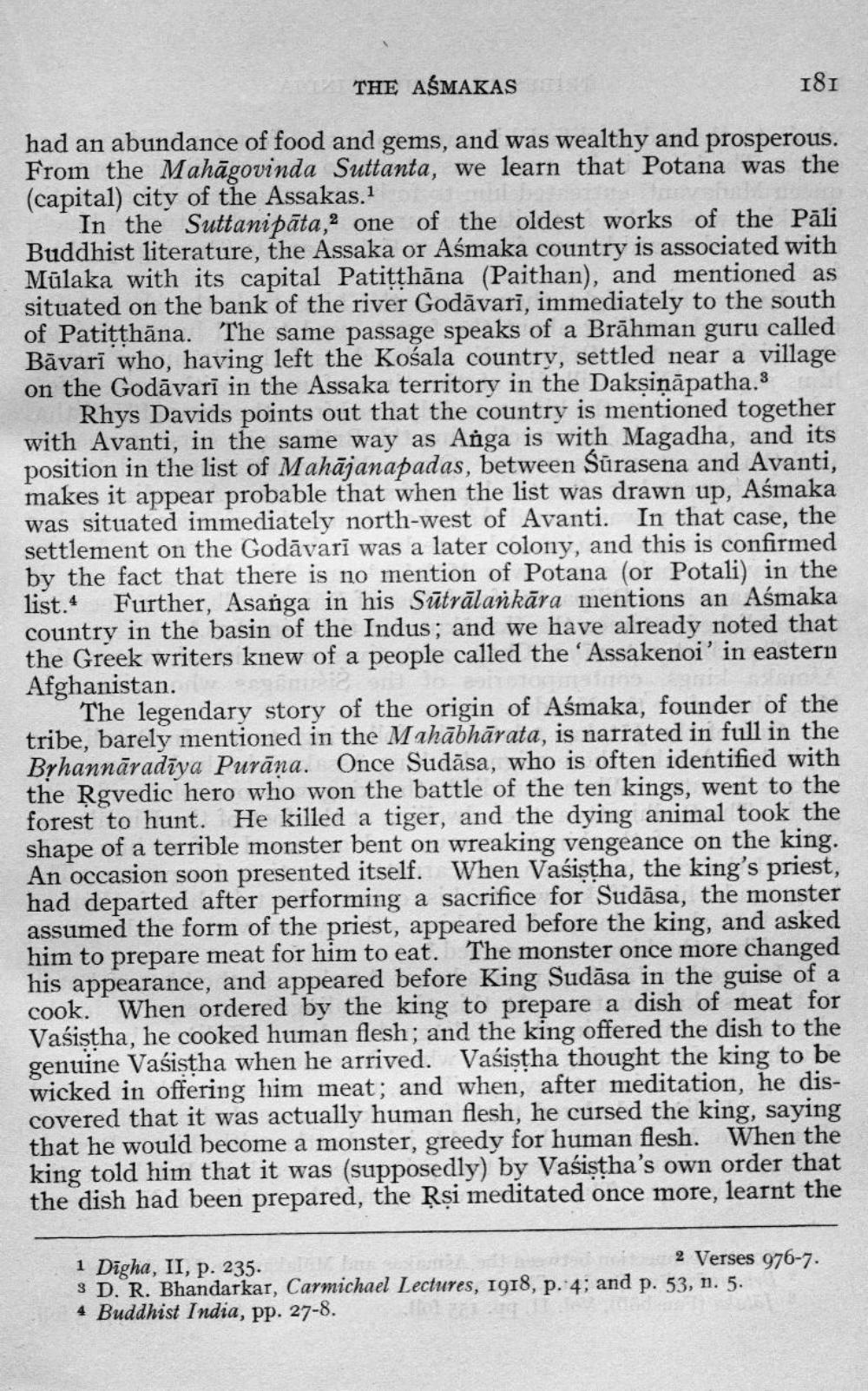________________
THE AŚMAKAS
181 had an abundance of food and gems, and was wealthy and prosperous. From the Mahāgovinda Suttanta, we learn that Potana was the (capital) city of the Assakas.
* In the Suttani pāta, one of the oldest works of the Pāli Buddhist literature, the Assaka or Aśmaka country is associated with Mülaka with its capital Patitthāna (Paithan), and mentioned as situated on the bank of the river Godāvari, immediately to the south of Patitthāna. The same passage speaks of a Brāhman guru called Bavari who, having left the Kośala country, settled near a village on the Godāvarī in the Assaka territory in the Dakṣiṇāpatha.3
Rhys Davids points out that the country is mentioned together with Avanti, in the same way as Anga is with Magadha, and its position in the list of Mahājanapadas, between Sūrasena and Avanti, makes it appear probable that when the list was drawn up, Asmaka was situated immediately north-West of Avanti. In that case, the settlement on the Godāvari was a later colony, and this is confirmed by the fact that there is no mention of Potana (or Potali) in the list.4 Further, Asanga in his Sūtrālankāra mentions an Asmaka country in the basin of the Indus; and we have already noted that the Greek writers knew of a people called the 'Assakenoi' in eastern Afghanistan.
The legendary story of the origin of Aśmaka, founder of the tribe, barely mentioned in the Mahābhārata, is narrated in full in the Byhannāradīya Purāna. Once Sudāsa, who is often identified with the Rgvedic hero who won the battle of the ten kings, went to the forest to hunt. He killed a tiger, and the dying animal took the shape of a terrible monster bent on wreaking vengeance on the king. An occasion soon presented itself. When Vasistha, the king's priest, had departed after performing a sacrifice for Sudāsa, the monster assumed the form of the priest, appeared before the king, and asked him to prepare meat for him to eat. The monster once more changed his appearance, and appeared before King Sudāsa in the guise of a cook. When ordered by the king to prepare a dish of meat for Vasistha, he cooked human flesh; and the king offered the dish to the genuine Vašistha when he arrived. Vaśistha thought the king to be wicked in offering him meat; and when, after meditation, he discovered that it was actually human flesh, he cursed the king, saying that he would become a monster, greedy for human flesh. When the king told him that it was (supposedly) by Vasistha's own order that the dish had been prepared, the Rși meditated once more, learnt the
1 Dīgha, II, p. 235.
2 Verses 976-7. 3 D. R. Bhandarkar, Carmichael Lectures, 1918, p. 4; and p. 53, n. 5. 4 Buddhist India, pp. 27-8.




